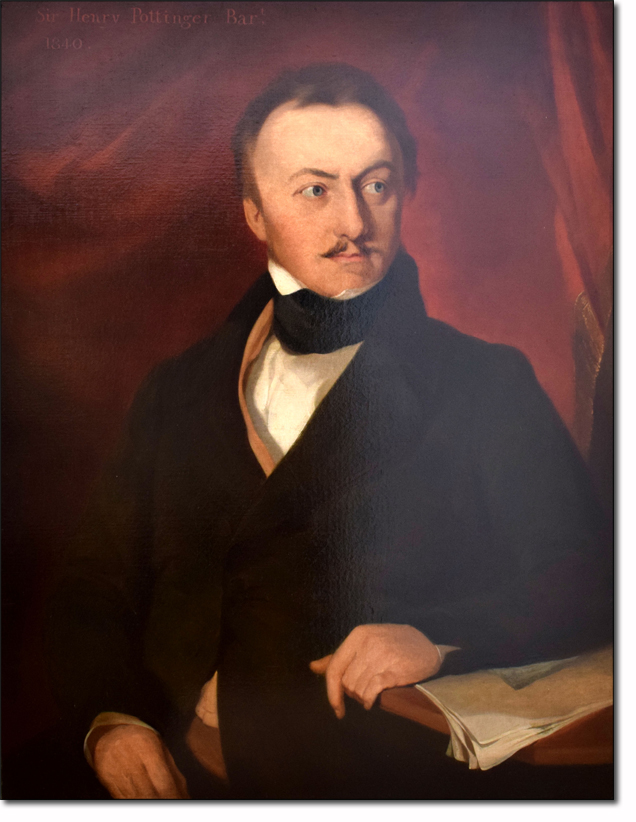|
|


|
|
Sir Henry Pottinger (1789 - 1856) had built up considerable experience in the Indian sub-continent from as far back as a 14 year old boy. He also travelled extensively throughout Central Asia in an era when the British were seeking to understand the lands beyond India's frontiers.
In 1840, Pottinger was appointed by Lord Palmerston to the post of envoy and plenipotentiary in China and superintendent of British trade in a period when Britain was seeking to increase its commercial presence in the region. Almost immediately he was embroiled in the First Opium War which began in January 1840. Palmerston directed Pottinger to replace an earlier unsatisfactory treaty by one which would open China to British trade. Unfortunately, before he reached China hostilities had once again recommenced. Major-General Sir Hugh Gough arrived in March 1841 to command an expeditionary force despatched from India. Gough took the four forts defending Canton in May 1841, and while he was preparing to attack the town itself, Pottinger reached Macau (9 August). He agreed that it would be helpful to the success of his mission to make a further display of force. He co-operated with Gough and Admiral Sir William Parker in the capture of Amoy (Xiamen), Chushan, Chintu (Chengdu), and Ningpo (Ningbo). On 13 June 1842 Pottinger, with Parker, entered the Yangtze (Yangzi) River with the object of taking Nanking (Nanjing). After a string of successes an assault on that city was imminent in July, when Pottinger announced that the Chinese were now ready to treat for peace on a satisfactory basis. The Chinese diplomats had already found that Pottinger could not be trifled with: an intercepted letter from the chief Chinese negotiator to his government stated that 'to all his representations the barbarian, Pottinger, only knit his brows and said “No”'. Eventually peace was signed on 29 August 1842 on board HMS Cornwallis before Nanking. By this treaty of Nanking, China agreed to pay a huge indemnity, Hong Kong Island was ceded to Britain, and the five 'treaty ports' of Canton, Amoy, Foochow (Fuzhou), Ningpo, and Shanghai were to be opened to British traders, and to receive British consuls. In recognition of his successful conduct of negotiations Pottinger was made GCB (2 December 1842), and on 5 April 1843 was appointed the first British governor of Hong Kong. He held this post for little more than a year before returning to Britain much heralded for his success in opening up China to British trade. |
Hong Kong | Governors of Hong Kong
Armed Forces | Art and Culture | Articles | Biographies | Colonies | Discussion | Glossary | Home | Library | Links | Map Room | Sources and Media | Science and Technology | Search | Student Zone | Timelines | TV & Film | Wargames